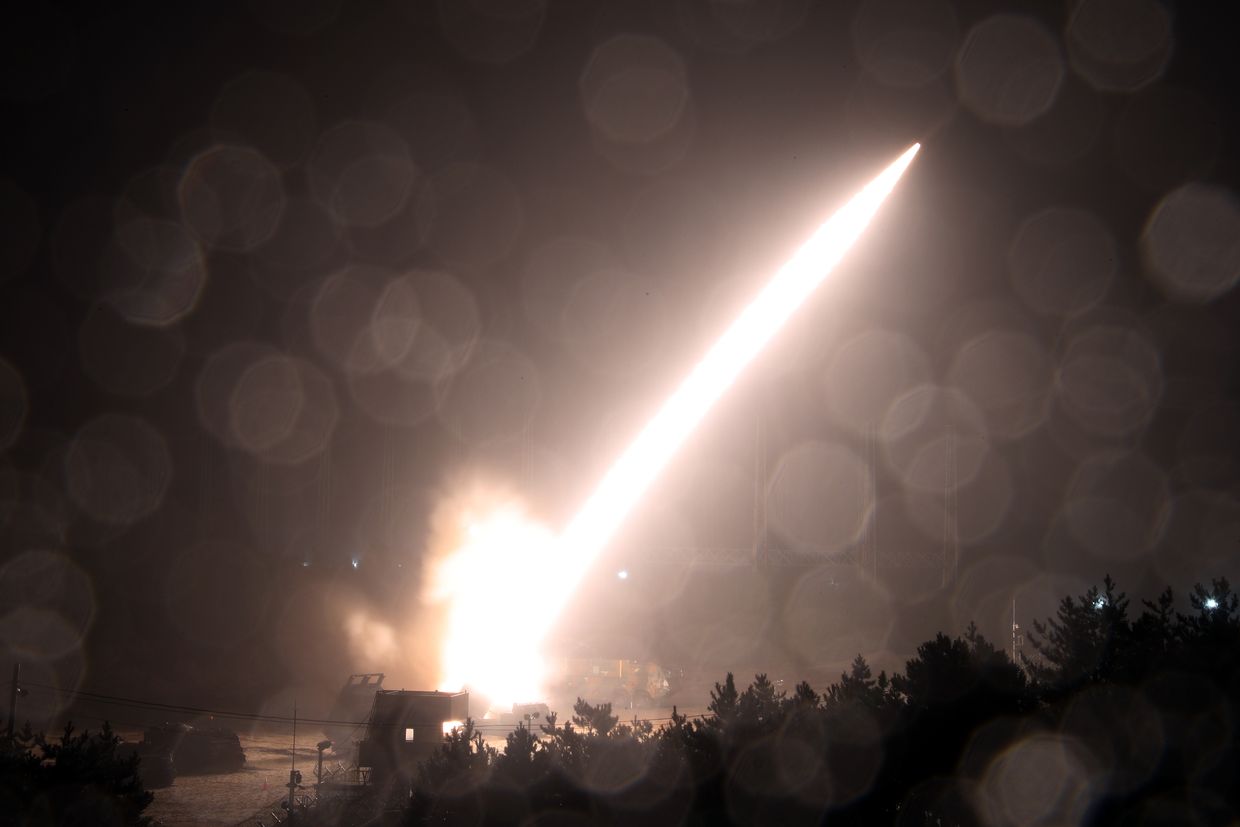Ukraine's long-range missile strike hopes on hold once again but encouraging signs remain

Ukraine's hopes of being allowed to use Western-supplied long range missiles to strike deep inside Russian territory were put on hold once again on Sept. 13, after the leaders of the U.S. and U.K. stopped short of making the announcement Kyiv wanted.
Anticipation had been high ahead of meetings between President Joe Biden and U.K. Prime Minister Keir Starmer in Washington, but the White House dampened expectations even before the pair had finished talks.
"There is no change to our view on the provision of long-range strike capabilities for Ukraine to use inside of Russia," National Security Council spokesperson John Kirby told reporters.
Ukraine was hoping for permission to use two Western-supplied long range missiles that it already possesses to strike military targets such as airfields located deep inside Russian territory.
With the bans in place, Kyiv says it cannot effectively defend Ukrainian cities from intensifying aerial attacks.
The two missiles are the U.S.-supplied ATACMS, a short-range supersonic tactical ballistic missile, and the U.K.-France-supplied Storm Shadow.
Both Storm Shadows and ATACMS were initially given to Kyiv on the provision that they only be used to strike Russian targets within Ukraine or in Russian-occupied parts of the country.
Western fears of escalating the war with Russia have been behind the restrictions.
The tide began to shift after Russia’s renewed offensive in Kharkiv Oblast in May, when the U.S. and other Western allies eased restrictions, allowing Ukraine to strike targets with Western weapons— in a defensive fashion — inside Russia.
In the lead up to Starmer and Biden meeting on Sept. 13, multiple media reports suggested both countries might be on the verge of allowing Kyiv to use their long-range weapons to strike targets deep in Russian territory.
According to Politico, on Sept. 11, Biden was said to be finalizing the details of a plan to lift some restrictions.
On the same day, the Guardian reported that the U.K. had already privately decided to allow Ukraine to use its British-supplied Storm Shadow missiles for long-range strikes, though no public announcement had been made at the time.
Hopes were understandably high that an announcement would come after the meeting between Biden and Starmer.
Speaking to reporters at the White House, Starmer said the meeting with Biden had been a "wide-ranging discussion about strategy" rather than a decision-making process about "a particular capability."
"We’ve had a long and productive discussion on a number of problems, including Ukraine, as you’d expect, the Middle East, and the Indo-Pacific, talking strategically about tactical decisions," he said.
According to reports, the U.K. has already decided to grant Ukraine permission to use Storm Shadows to strike targets deep inside Russia.
The White House said the meeting between the two leaders was called at the request of the U.K., and according to The New York Times (NYT), Britain wants explicit permission from Biden so a coordinated strategy can be presented.
While Kirby was very clear that a decision was not coming on Sept, 13, he didn't rule out that one could be made in the near future.
According to the Guardian, Starmer suggested the plan would be further discussed "with a wider group of individuals" at the UN general assembly in New York later this month.
The NYT reported that it's likely a decision will be made about Storm Shadows before one is reached over ATACMS.
While Ukraine has been pleading for permission for months, it's understood the stance of Western nations has changed in light of Iran supplying Russia with ballistic missiles.
"We've now seen this action of Russia acquiring ballistic missiles from Iran, which will further empower their aggression in Ukraine. So if anyone is taking escalatory action, it would appear to be Mr. Putin and Russia," U.K. Foreign Secretary David Lammy, said while visiting Kyiv earlier this week.
Lammy added that the Iran supplying ballistic missiles to Russia "clearly changes the debate" around the issue, as it allows the Kremlin to gain "further penetration into Ukraine."
Russian President Vladimir Putin and other Russian officials have upped their saber-rattling in response, claiming that the move would mean NATO is directly at war with Russia.
"I do not think much about Vladimir Putin," Biden said when asked on Sept. 13 what he thought about the Russian president's remarks.











